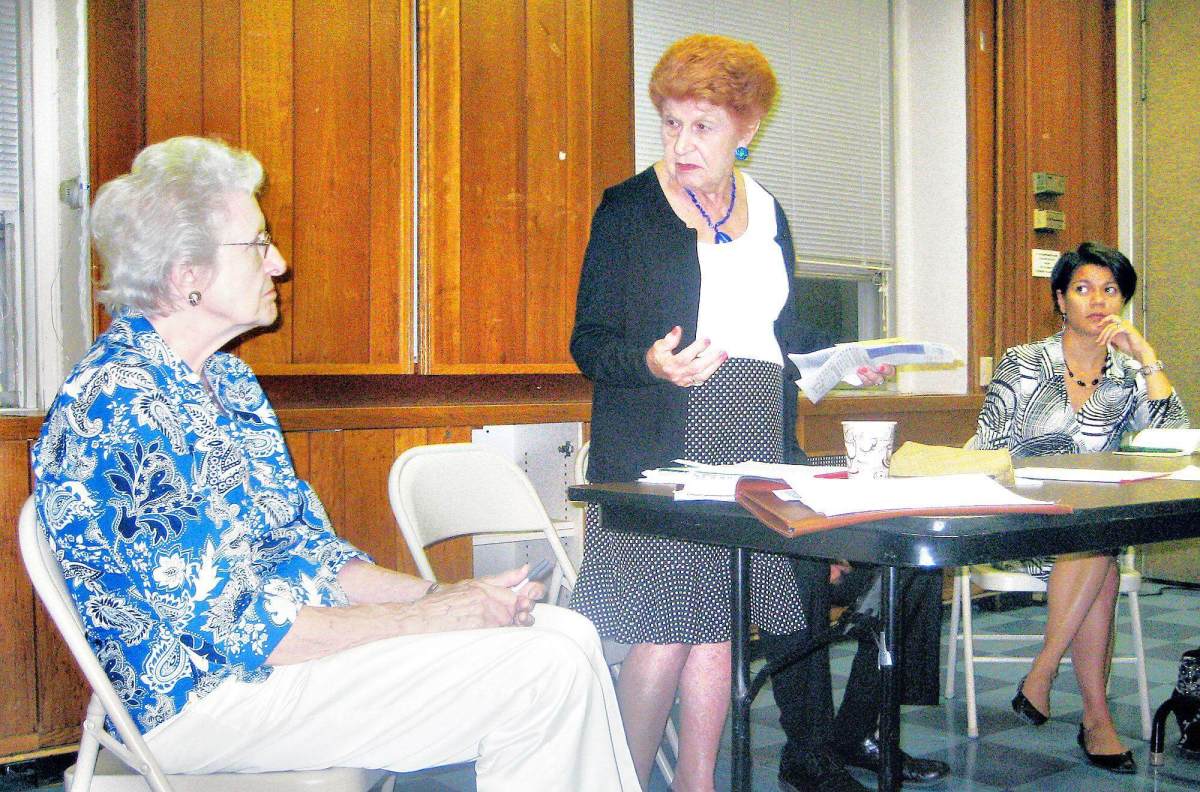By Anna Gustafson
Detective Juan Toro, a community affairs officer in the 108th Precinct in Long Island City, told a forum at Queens Borough Hall last week that police know sex trafficking is a major issue in Queens and are working to identify victims and perpetrators.
“It can be hard to find out who these girls are, because they’re brought here, they might not speak the language, they’re threatened their families will be killed if they say anything, they’re scared,” Toro said at the Sept. 8 forum on sex trafficking. “But one voice, like yours, ignites a lot. You being here makes a difference.”
The Center for the Women of New York and the Queens chapter of the United Nations Association sponsored the forum in an ongoing effort to shed light on sex trafficking, which officials have said is especially problematic and prevalent in Queens because of the borough’s two international airports.
Sex trafficking ensnares at least 800,000 annually people worldwide, the majority of them being women and children, according to federal statistics. Many of those individuals end up in Queens, where they are physically and emotionally abused, according to borough officials who work with trafficking victims.
“Human trafficking is ranked No. 2 in the world in organized crime,” said Mandy Gor, a member of the Queens chapter of the United Nations Association and a Kew Gardens resident who spoke at the meeting at which Toro was the guest speaker. “Human trafficking just surpassed drugs because it’s more profitable.”
During the meeting, CWNY President Ann Jawin and Gor said they were attempting to combat the exploitation in the borough by asking for support from community newspapers. The groups have asked publishers of area papers not to run ads for businesses that often employ individuals forced into sex work.
“The newspapers have responded to us, and we really only have one community newspaper that’s still a problem,” Jawin said. “There are other things we can do, too. You can go over to your supermarket manager and say this paper with these ads is garbage and you don’t want to buy it. You can tell them not to carry it anymore.”
Gor also said she is trying to bring films about sex trafficking to the borough in order to raise consciousness about the issue.
“Becoming aware of this will help to identify these victims in Queens,” Gor said.
Gor also emphasized it is important for police to undergo training specifically to help them identify potential sex trafficking victims — many of whom are walking around borough neighborhoods during the day but are not trying to escape for a multitude of reasons, including fear that the individuals who brought them to the United States will retaliate by killing their families.
Toro said the NYPD frequently works with the FBI on sex trafficking cases, although he did not say if police specifically attend sex trafficking training.
Reach reporter Anna Gustafson by e-mail at agustafson@cnglocal.com or by phone at 718-260-4574.



































